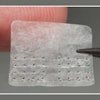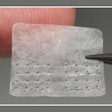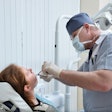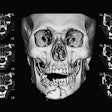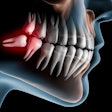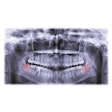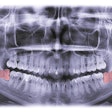Reiki, a healing therapy that involves a transfer of energy via gentle touch, may be linked to a reduction in pain after wisdom tooth surgery but not presurgical anxiety. The study was published on September 10 in the Journal of Oral and Maxillofacial Surgery.
However, more trials are needed to clarify Reiki therapy’s role in oral surgery, the authors wrote.
“Reiki therapy did not reduce preoperative anxiety but was associated with lower postoperative pain,” wrote the authors, led by Meltem Ozden Yuce, PhD, an associate professor in the department of oral and maxillofacial surgery at Ege University in Turkey.
Reiki is a Japanese form of therapy that uses touch to promote relaxation and overall well-being. Although its scientific efficacy has not been definitively proven, some practitioners feel it stabilizes energy flow to aid the body's natural healing abilities. Its efficacy in dentistry remains unclear.
To explore whether Reiki eases preoperative anxiety and postoperative pain in third-molar surgery, a single-blind randomized controlled trial was conducted at the Ege University and included 180 individuals with good health and lower jaw class II-B impaction with no previous history of wisdom tooth extraction or Reiki therapy.
Primary outcomes were determined using the State-Trait Anxiety Inventory I, the State-Trait Anxiety Inventory II, the Beck Anxiety Inventory, and the visual analog scale over seven days. The individuals underwent Reiki, sham Reiki, or no intervention, according to the study.
Postsurgical pain scores were significantly lower in those who underwent Reiki therapy (mean STAI-I: 2.7 ± 1.8) compared with sham Reiki (3.0 ± 1.7) and no intervention (3.5 ± 1.9) (p = 0.045). However, the healing therapy did not reduce preoperative anxiety (mean: 36.6 ± 10.0; p = 0.079) compared with sham Reiki (40.1 ± 10.1) and no intervention (40.8 ± 10.8), the authors wrote.
Nevertheless, the study had limitations, including its context as it related to anesthetic protocol. While IV sedation is used in wisdom tooth surgery in the U.S., this is not the case in other countries, including Turkey. Reiki may be valuable in other countries; it may not be as applicable in the U.S. since IV sedation is readily accessible, the authors wrote.
Though more research is needed, “Reiki may represent a useful adjunctive tool in oral surgery, contributing to patient comfort without interfering with conventional treatment protocols,” Yuce and the co-authors wrote.


